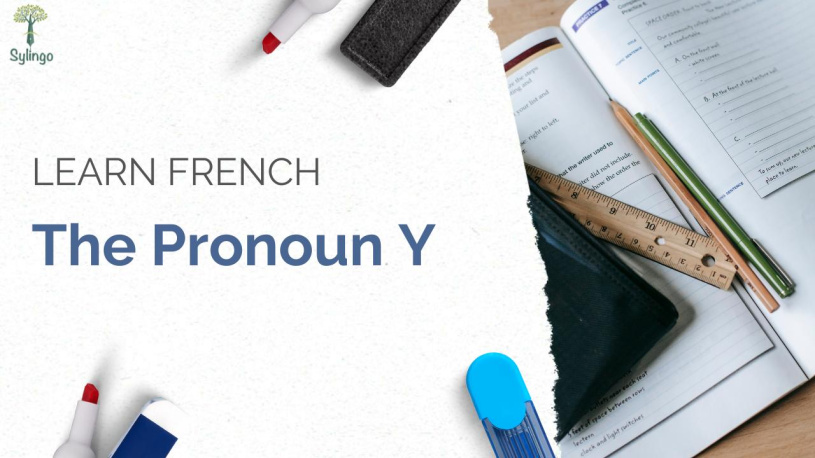In French, the pronoun "y" serves as a replacement for a place or a noun preceded by the preposition "à." It helps avoid repetition and makes sentences more concise. Let's explore the usage of "y" in different contexts.
1. Replacing a Place Name:
When "y" replaces a place name (un nom de lieu), it indicates the location where an action is happening or where something is located.
Examples:
-
Pierre habite à Paris. Il y habite depuis dix ans. (Pierre lives in Paris. He has been living there for ten years.)
-
Je vais à la bibliothèque. J'y vais pour étudier. (I'm going to the library. I'm going there to study.)
-
Marie est venue chez moi. Elle y est depuis 30 minutes. (Marie came to my house. She has been there for 30 minutes.)
A- Quand vas-tu aux Etats-Unis? (When are you going to the United States?)
B- J'y vais en décembre. (I'm going in December.)
A- C'est super! Tu y vas avec qui? - (That's great! Who are you going with?)
B- J'y vais avec ma famille. - (I'm going with my family.)
2. Replacing a Noun Introduced by "À":
When "y" replaces a noun introduced by the preposition "à," it typically refers to an indirect object or a place.
Examples:
-
Tu penses à ta famille? Oui, j'y pense souvent. (Are you thinking about your family? Yes, I think about them often.)
-
Il pense à son travail. Il y pense tout le temps. (He's thinking about his work. He thinks about it all the time.)
-
Il pense à son avenir, il y pense toujours. (He thinks about his future, he always thinks about it.)
A- Tu t'intéresses à l'histoire? (Are you interested in history?)
B- Oui, je m'y intéresse beaucoup. (Yes, I am very interested in it.)
A- Est-ce que tu as acheté un paquet hier? - (Did you buy a packet of bread yesterday?)
B- Oui, j’en ai acheté. (Yes, I bought it.)
Important Notes:
Placement:
The pronoun "y" is placed before the conjugated verb in a simple tense or before the auxiliary verb in compound tenses.
Agreement:
The pronoun "y" does not agree in gender or number with the noun it replaces. It remains "y" regardless of the noun's gender or number.
Practice Exercise:
Rewrite the following sentences using the pronoun "y":
-
Je vais au magasin. (I'm going to the store.)
-
Nous pensons à nos vacances. (We're thinking about our vacation.)
-
Tu réponds à ta mère. (You're answering your mother.)
Corrected Sentences:
-
J'y vais.
-
Nous y pensons.
-
Tu y réponds.
By understanding and practicing the use of the pronoun "y," you'll be able to express yourself more fluently in French and create more cohesive sentences.





